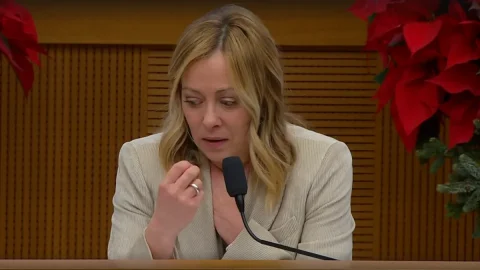Outright Monetary Transactions or, more briefly, OMT. In Italian, Direct Monetary Transactions. They are the solution developed by the Governing Council of the European Central Bank to save the euro and bring the spreads of the various countries of the Euroland family back into balance. The president of the ECB, Mario Draghi, after announcing that the central institution will keep the reference rate unchanged, he illustrated the new government bond purchase plan (the famous spread-saving plan) which provides for unlimited (but "conditional") purchases of bonds from one to three years on the secondary market. The precondition is that these transactions are accompanied by purchases on the primary market by state-saving funds. In other words, the countries that will be able to take advantage of the OMT will have to ask for help from the EFSF/ESM and therefore submit to the austerity conditions imposed by the EU.
It was what the markets expected and in fact the European stock exchanges have started to run again and the spreads of Italy and Spain are at their lowest since April. But, Draghi points out, it is essential to develop the "two legs" of Europe, the economic and the political one, otherwise the euro cannot work.
This is the legal framework within which the OMT program will take place.
CONDITIONALITY – To activate the OMTs, "a strict and effective conditionality attributed to an appropriate ESFS/ESM program" is required, which can be a comprehensive or precautionary program (the enhanced conditions credit line ECCL). Furthermore, in the case of individual states, the ECB will be able to seek the involvement of the International Monetary Fund. The Governing Council will consider OMTs when justified from a monetary policy perspective – provided that conditionality is met – and will terminate the transactions when the targets are met or when countries fail to meet the adjustment conditions set. The Governing Council will decide autonomously on the initiation, continuation and suspension of the MTOs – always in accordance with its mandate.
COVER – OMT operations will be taken into consideration for countries that in the future will request help from the EFSF or ESM, and therefore Spain and Italy, if one day they decide to ask for help from the EU. But OMTs can also be considered for member states that are already part of an adjustment program – but only when they regain access to bond markets. The reference in this case is to Ireland and Portugal. The bonds to which these transactions will be addressed will have a maturity of between 1 and 3 years and no ex ante quantitative limit will be established on the volume of purchases.
CREDITORS – The ECB will not have any kind of priority as a creditor. The OMTs will have the same treatment applied to private individuals and other creditors as regards the bonds issued by Euroland.
STERILIZATION – The liquidity generated through the OMTs will be totally sterilised.
TRANSPARENCY – The ECB will publish the aggregate value of the OMTs on a weekly basis while the country-by-country distinction will take place every month.
SECURITIES MARKETS PROGRAM (Smp) – The old government bond purchase programme, launched during the Trichet presidency, ended today and the bonds purchased so far (equal to 209 billion euros) will be held by the Central Bank until they expire.
Thus Draghi reassured the markets with an effective and linear financial framework but Europe still needs to strengthen its second leg. Although Draghi's invitation to Spain to ask for aid from the EFSF may seem explicit, doubts still remain about the conditions that the EU will impose on countries that want to follow this path.
At the same time as the press conference of the president of the ECB, the Spanish premier Mariano Rajoy received the German chancellor Angela Merkel in Madrid. It was expected that the two heads of state would find an agreement on the conditions to be placed in the memeorandum of understanding to ask for help from the bailout fund. Yet the two leaders said they had not spoken about the issue.
Looking at the spread reaction it would appear that the financial leg is pulling up. But one cannot limp: the time has come to straighten the political leg too.





